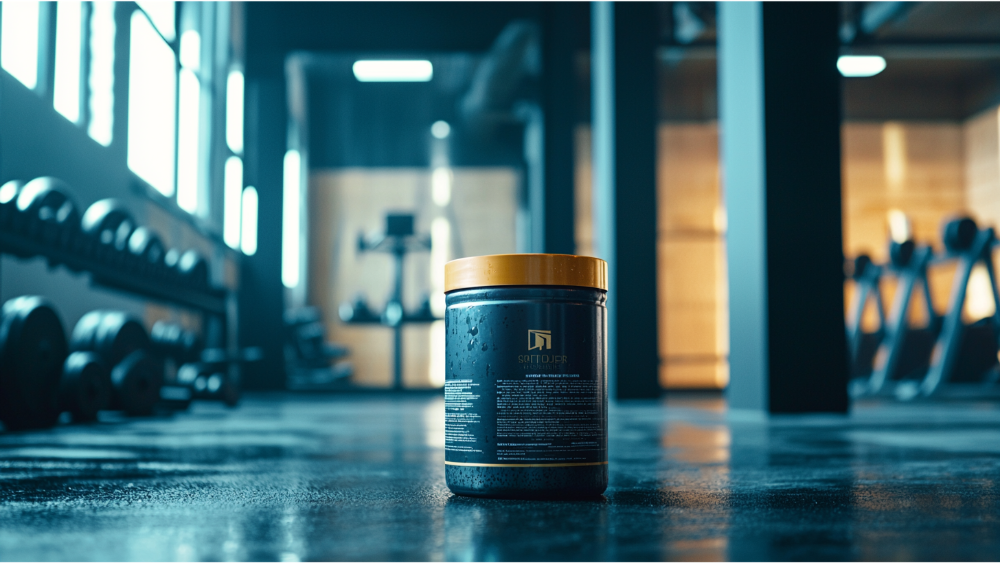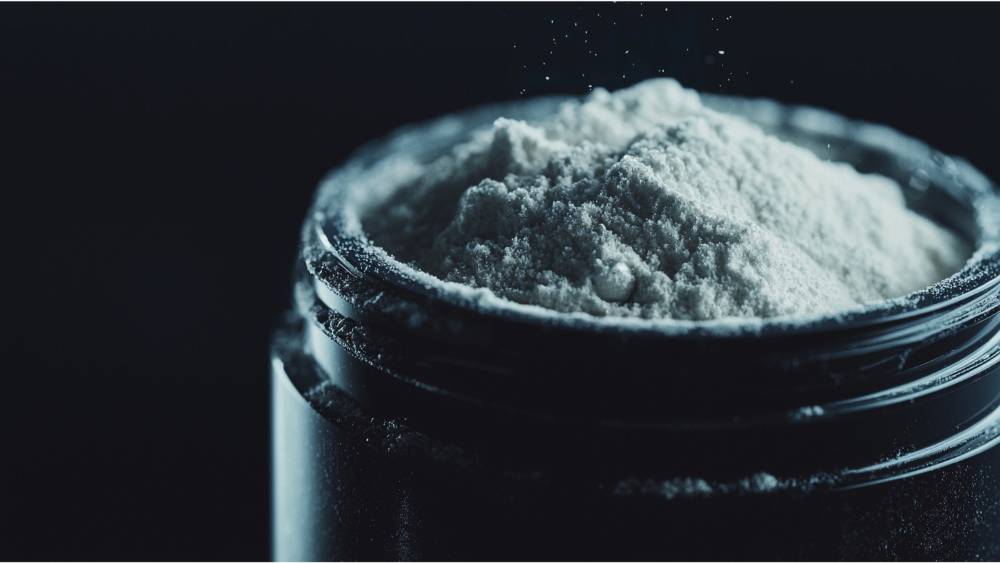Beta-alanine has become one of the most popular supplements in the fitness world, particularly among athletes and bodybuilders. As a naturally occurring amino acid, it plays a key role in enhancing physical performance, particularly during high-intensity, short-duration exercises. But what exactly is beta-alanine, and why do so many fitness enthusiasts swear by it?
In this article, we’ll dive deep into the science of beta-alanine, its benefits, dosages, and how it helps improve performance, ensuring you have all the knowledge needed on this supplement.
Beta-Alanine is…
Beta-alanine is a non-essential amino acid, which means the body can produce it on its own. However, it is not used in protein synthesis like other amino acids. Instead, it plays a critical role in synthesizing carnosine, a compound stored in the muscles. Carnosine helps buffer acid in muscles, reducing fatigue and allowing for enhanced performance in high-intensity workouts.
How Beta Alanine Differs from Other Amino Acids
Unlike essential amino acids such as leucine or valine, which are used for muscle protein synthesis, beta-alanine is focused on carnosine production. This makes it unique in its function as an exercise performance enhancer rather than a muscle builder. The key distinction is that beta-alanine is the limiting factor in carnosine production, meaning its availability directly affects how much carnosine your muscles can store.
Natural Sources of Beta-Alanine
Animal-based Sources
Beta-alanine is naturally found in animal products, especially in meats like beef, pork, chicken, and fish. These foods contain carnosine, which is broken down into beta-alanine and histidine during digestion. For people who consume meat regularly, their diet naturally provides a certain amount of beta-alanine.
Dietary Challenges for Vegans/Vegetarians
For vegetarians and vegans, getting enough beta-alanine through diet can be challenging because plant-based foods lack significant amounts of this amino acid. As a result, supplementation becomes more important for those who follow a plant-based diet but still want to experience the benefits beta-alanine offers.
The Science Behind Beta-Alanine

The Role of Carnosine in Muscles
Carnosine acts as a buffer for lactic acid in the muscles, delaying the onset of fatigue. During high-intensity exercise, hydrogen ions build up in the muscles, leading to an increase in acidity. This is what causes the burning sensation and subsequent muscle fatigue. By increasing carnosine levels in the muscles, beta-alanine supplementation helps maintain pH levels, allowing for prolonged performance without hitting the fatigue wall too quickly.
Beta-Alanine and Muscle Acidity
The process of muscle acidification, often caused by the accumulation of lactic acid, is one of the key limiting factors in high-intensity performance. Beta-alanine’s role in buffering this acidity allows athletes to push harder and longer before muscle fatigue sets in. This translates into better performance, particularly for activities lasting between one and four minutes, like sprinting or heavy resistance training.
How Beta Alanine Enhances Performance
Increased Endurance
Beta-alanine supplementation has been shown to improve endurance by delaying the buildup of lactic acid. This is especially beneficial for athletes engaged in high-intensity interval training (HIIT) or endurance sports like cycling and running. Studies have demonstrated that athletes who supplement with beta-alanine can perform more reps, sustain higher power outputs, and experience less fatigue.
Delay in Muscle Fatigue
One of beta-alanine’s primary benefits is its ability to delay muscle fatigue. By increasing carnosine levels, beta-alanine helps neutralize the acids produced during exercise. This allows athletes to continue training at high intensities for longer periods, which is crucial for both performance and muscle growth.
Research on Athletic Performance
Numerous studies have explored the effects of beta-alanine supplementation on athletic performance. For example, research published in the Journal of the International Society of Sports Nutrition found that beta-alanine improved endurance in activities lasting between one and four minutes. Another study on sprinters showed that beta-alanine supplementation significantly increased their time to exhaustion, allowing them to perform at higher intensities for longer.
Benefits of Beta-Alanine

Athletic and Fitness Benefits
Improved Strength and Power
Beta-alanine is not only beneficial for endurance but also for power-based activities. Athletes involved in weightlifting, powerlifting, and bodybuilding can experience improved strength and power output due to beta-alanine’s effects on muscle fatigue. The delayed onset of fatigue means more reps at higher weights, contributing to strength gains over time.
Enhanced Exercise Capacity
Beta-alanine increases an athlete’s capacity to perform by reducing fatigue, which in turn allows for a higher training volume. Whether you’re a sprinter or a cyclist, increasing the amount of work you can do before reaching fatigue can significantly enhance performance. For instance, cyclists supplementing with beta-alanine showed improved performance in time trials and endurance tests.
Beta-Alanine and HIIT (High-Intensity Interval Training)
HIIT workouts are known for their intensity and the rapid onset of fatigue due to the accumulation of lactic acid. Beta-alanine’s buffering effects are particularly useful in these settings, allowing athletes to push through more intervals before fatigue sets in.
Health and Longevity Benefits
Antioxidant Properties of Carnosine
Carnosine, produced through beta-alanine supplementation, also acts as a potent antioxidant. It helps neutralize free radicals, which can cause oxidative stress and damage to muscle tissue. This antioxidant effect not only supports muscle health but also contributes to overall longevity by reducing oxidative damage throughout the body.
Potential Anti-aging Benefits
The anti-aging properties of carnosine, made possible by beta-alanine, are being studied for their effects on cellular aging. Carnosine helps to protect cells from damage, which could slow down the aging process and promote healthier, more resilient tissues. While research is ongoing, these findings add another layer of value to beta-alanine beyond its performance-enhancing benefits.
Dosage and Supplementation
Recommended Dosage of Beta-Alanine
The typical dosage for beta-alanine averages at 3.2 grams per day. You will see most pre-workouts with this dosage. Some research suggests that a minimum of 4 grams per day is needed to see significant performance benefits. Some athletes may use higher doses, but it’s important to start with a smaller dose and gradually increase to assess tolerance.
Timing and Frequency of Beta-Alanine Supplementation
Pre-Workout Timing
Many athletes prefer to take beta-alanine as part of their pre-workout regimen. While timing isn’t critical, taking it before a workout can help mentally and physically prepare for an intense session.
Loading Phases
Like creatine, beta-alanine often requires a loading phase to saturate the muscles with carnosine. This means taking higher doses for the first few weeks before transitioning to a maintenance dose. Studies show that a loading phase of 4-6 weeks is needed to fully realize the benefits.
Types of Beta-Alanine Supplements
Pure Beta Alanine vs. Mixed Supplements
Beta-alanine is available in pure form or as part of mixed pre-workout supplements. Pure beta-alanine allows for more precise control over dosing, while pre-workout formulas often combine beta-alanine with other performance-enhancing ingredients like caffeine and creatine.
Combining Beta Alanine with Other Supplements
Combining beta-alanine with creatine is a common strategy for athletes looking to improve both endurance and strength. Creatine supports short bursts of power, while beta-alanine helps sustain performance over longer periods, making them complementary.
Side Effects and Safety

Common Side Effects of Beta-Alanine
The most common side effect of beta-alanine is paresthesia, a tingling or prickling sensation on the skin. This harmless effect can occur when beta-alanine is taken in higher doses. To avoid this, users can split their doses throughout the day or opt for sustained-release formulas.
Long-Term Safety and Use
Beta-alanine has been shown to be safe for long-term use in the dosages recommended. Most studies have been conducted over 12-week periods, but no significant adverse effects have been observed during this time.
Who Should Avoid Beta Alanine?
Medical Considerations
Individuals with certain medical conditions should consult a healthcare provider before starting beta-alanine. This includes those with liver or kidney problems, as the body metabolizes beta-alanine in these organs.
Pregnant and Nursing Women
There is limited research on the safety of beta-alanine during pregnancy and nursing, so it’s recommended that these individuals avoid supplementation unless advised otherwise by a healthcare professional.
Who Can Benefit from Beta Alanine?

Athletes and Fitness Enthusiasts
Athletes involved in high-intensity sports such as sprinting, weightlifting, and cycling are the primary beneficiaries of beta-alanine. The supplement helps them delay fatigue and improve overall performance in short, intense bursts of activity.
Older Adults
Emerging research suggests that beta-alanine may be useful for older adults, particularly in preserving muscle mass and improving endurance. Carnosine’s antioxidant properties may also help reduce the effects of aging on the muscles.
Beta-Alanine for Non-Athletes
While beta-alanine is primarily targeted at athletes, even non-athletes can experience health benefits. Enhanced endurance, better energy levels, and protection from oxidative stress are beneficial for everyone.
Conclusion
Beta-alanine is a powerful supplement for anyone looking to improve their athletic performance, particularly in high-intensity sports. Its role in increasing carnosine levels in muscles makes it an effective tool for reducing muscle fatigue, improving endurance, and increasing overall exercise capacity. Whether you’re a professional athlete or a casual gym-goer, beta-alanine can help you push past your limits and achieve better results. However, like any supplement, it’s important to consult with a healthcare provider before starting beta-alanine, especially if you have any underlying health conditions.
- Dosage and Supplementation: Specific guidelines for dosing, timing, and best practices for combining beta-alanine with other supplements.
- Side Effects and Safety: A more detailed examination of the common side effects like paresthesia and long-term safety concerns.
- Who Can Benefit from Beta Alanine?: Tailoring the use of beta-alanine to specific groups like athletes, older adults, and non-athletes.

Leave a Reply